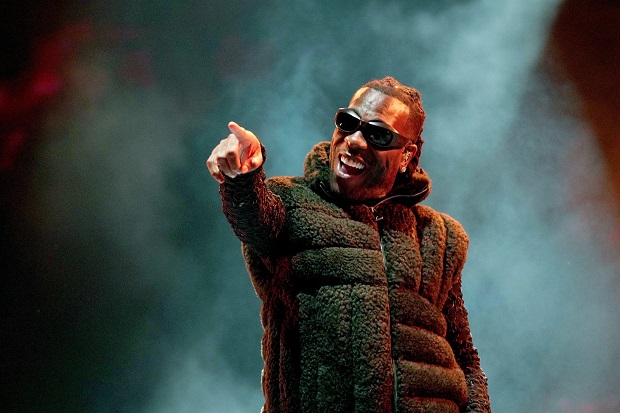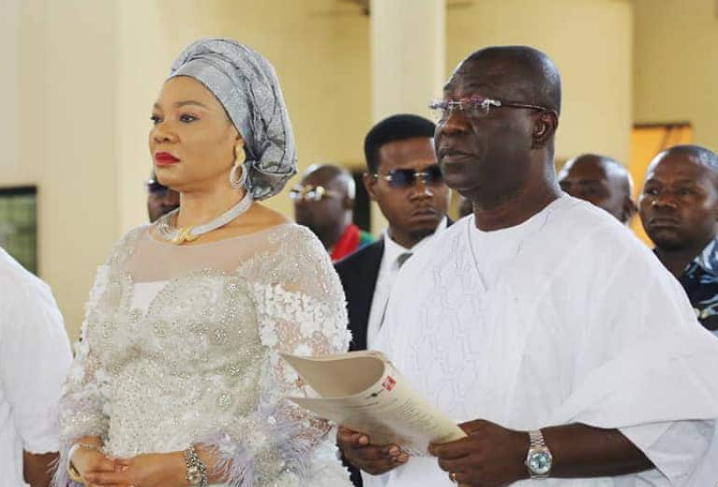Most people started paying attention to the trouble in Israel on Sunday when Prime Minister Benjamin Netanyahu fired his Defense Minister Yoav Gallant. As you read this, droves of protesters holding Israeli blue-and-white flags are still flooding the streets of the Jewish state despite Netanyahu’s decision on Monday to delay the divisive judicial overhaul for a month. On Sunday night in Tel Aviv, they blocked a main highway and lit large bonfires. Outside Netanyahu’s private home in Jerusalem, police battled protesters.
For three months, thousands of Israelis have been on the country’s streets protesting a judiciary reform that Prime Minister Benjamin Netanyahu is proposing. Netanyahu, Israel’s longest-tenured prime minister, argues that reform is needed to strengthen the government. In Netanyahu’s opinion, the judiciary is an obstacle to the transformation he wants in Israel because they have too much influence over law-making and public policy. The opposition believes Netanyahu, who has been prime minister for a total of 15 years, intends to weaken the judiciary and transform himself into a dictator. The prime minister is dealing with the country’s judiciary while on trial for corruption. Before he was allowed to resume office for the 3rd time, Netanyahu signed a Supreme Court-approved conflict of interest agreement, which some believe he is now violating.
The current crisis is the first time in the country’s 75-year history that citizens have stood up in this number to oppose their government. It is so bad that military reservists are refusing to answer the call for duty. Israeli military depends heavily on its reservists. This challenge prompted the dismissed defense minister to call for a halt to the planned judiciary reform because it hurt the military’s morale and encouraged Israel’s enemies, all of which endangered Israel’s security. Prime Minister Netanyahu felt that the opposite is true, that judicial reform is needed to safeguard Israel’s security. He fired Gallant for “not standing up to insubordination” of the military reservists.
In his reaction, the opposition leader in Israel’s parliament Yari Lapid said that firing Gallant, “just because he warned of a threat to Israel’s security, is a new low for this anti-Zionist government.” He continued, “Netanyahu can fire Gallant, but he can’t fire reality, and he can’t fire the Israelis who are standing up against this coalition’s insanity.” He concluded that “the prime minister is a danger to Israel’s security.”
Advertisement
Meanwhile, the prime minister’s son, Yair Netanyahu, accuses the US government of financing the protests.
In France, President Emmanuel Macron faces a similar obstacle with his desire to implement pension reforms. Millions of French citizens have been protesting Macrons’ attempt at moving the retirement age from 62 to 64. Macron argues that without changes, the pension plan will collapse. Even though economists say that French workers are living longer and there are fewer workers to pay into the pension purse to keep it solvent, the populace is still on the streets protesting. President Macron’s decision to bypass the National Assembly to institute the reform on his own raised the country’s anger and fear for the state of French democracy.
In Nigeria, the federal government will remove the oil subsidy in a few weeks. It will plunge the country into a similar crisis. If this happens under the unpopular government of Muhammadu Buhari, it will be worse. It will be catastrophic if it occurs under an unpopular in-coming government of Bola Tinubu. Like in France and Israel, there is no argument that the government can present that will be satisfactory to Nigerians.
Advertisement
The problem with these unpopular policies by the democratically elected governments of Israel and France is the way they endanger democracy itself. While the Israeli and French governments have not used extreme force to crush the protest that started in January, in the case of Nigeria, you can be sure that Nigeria’s security agencies will unleash armed men to the streets to quell the protest.
When leaders chip away at the tenets of democracy, it affects everything. It may take time, but removing safeguards and checks and balances over time will lead to a return to a medieval society where “might is right and woe to the weak” that humanity had tried before and found wanting.
Knowing Nigerians, all these might not concern us. But it will interest us to note that even our dear Jesus is in trouble in Netanyahu’s Israeli.
For years, two members of the Knesset, Israel’s parliament, have been pushing to outlaw telling people about Jesus. If Moshe Gafni and Yaakov Asher of the United Torah Judaism Party have their way, anyone who shares the gospel of Jesus Christ in Israel will go to jail.
Advertisement
Gafni and Asher are ultra-Orthodox members of the governing coalition led by Prime Minister Benjamin Netanyahu. They have legislation that they are pushing to enforce their pet desire to ban spiritual conversions in Israel. Their proposed punishment for such an act would be one-year imprisonment if the transformation happened to an adult. But if the conversion happened to someone under 18, the punishment would be two years. Even though their bill did not mention Jesus or the New Testament, those who knew Gafni said he had an axe to grind with the New Testament.
To ease the fear of Christians in Israel and around the world, Prime Minister Netanyahu wrote, “We will not advance any law against the Christian community.”
Political analysts in Israel also do not see such legislation passing in the Knesset, at least not now. They pointed out that Moshe Gafni has been pushing for it for over three decades and has yet to be successful. He even introduced a bill to ban the New Testament in Israel and criminalize those possessing it. So far, lawmakers have shot down such extreme bills.
According to Israel’s Central Bureau of Statistics, Israel’s Christian community grew by 1.4 percent in 2020. Of the 8.8 million people in Israel, 1.9 percent of the population (about 185,000) is Christian. In contrast, 18 percent of the Israeli population (approximately 1,584,000) is Muslim, and 1.6 percent (about 143,000) is Druze. Also of interest is that 76.7 percent of Christians in Israel are Arabs.
Advertisement
Concerned analysts say that Gafni’s anti-religious freedom bills did not go anywhere in the last three decades does not mean they would not go anywhere in the next three decades. They pointed at the current judicial reform as an example of something nobody knew would happen in Israel. They also warned that the weakening of the judiciary would make it possible for a future right-wing dominated Knesset to pass such a bill. And when that happens, there won’t be a judiciary to defend freedom of speech and religious freedom.
With his determination to transform Israel, nobody can tell how far Netanyahu is willing to go and how much he will trade to have his way. If he is persistent about staying in power at all costs and needs these ultra-Orthodox members of the Knesset to stay alive, he may close his eyes and make a deal.
Advertisement
And who knows, Jesus may be on Netanyahu’s chopping block when that time comes. And if it does not happen under Netanyahu, it may happen under a future more extreme prime minister, like Moshe Gafni.
Rudolf Ogoo Okonkwo teaches Post-Colonial African History at the School of Visual Arts in New York City. He is also the host of Dr. Damages Show. His books include “This American Life Sef” and “Children of a Retired God,” among others.
Advertisement
Views expressed by contributors are strictly personal and not of TheCable.
Add a comment







